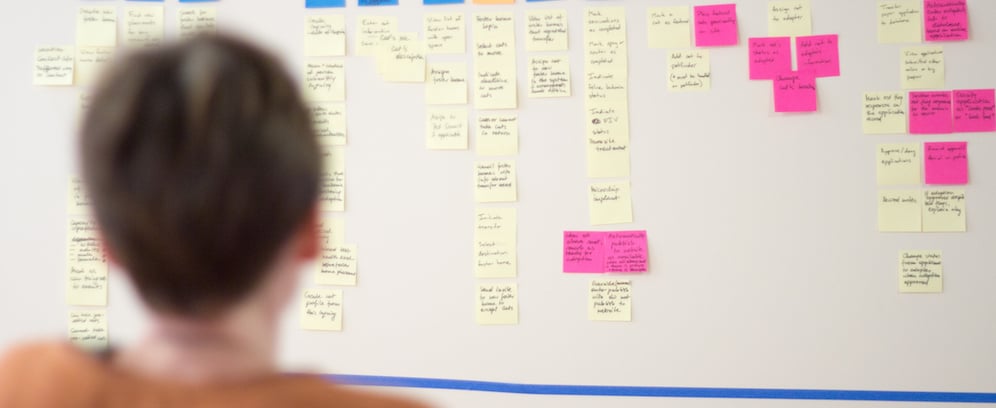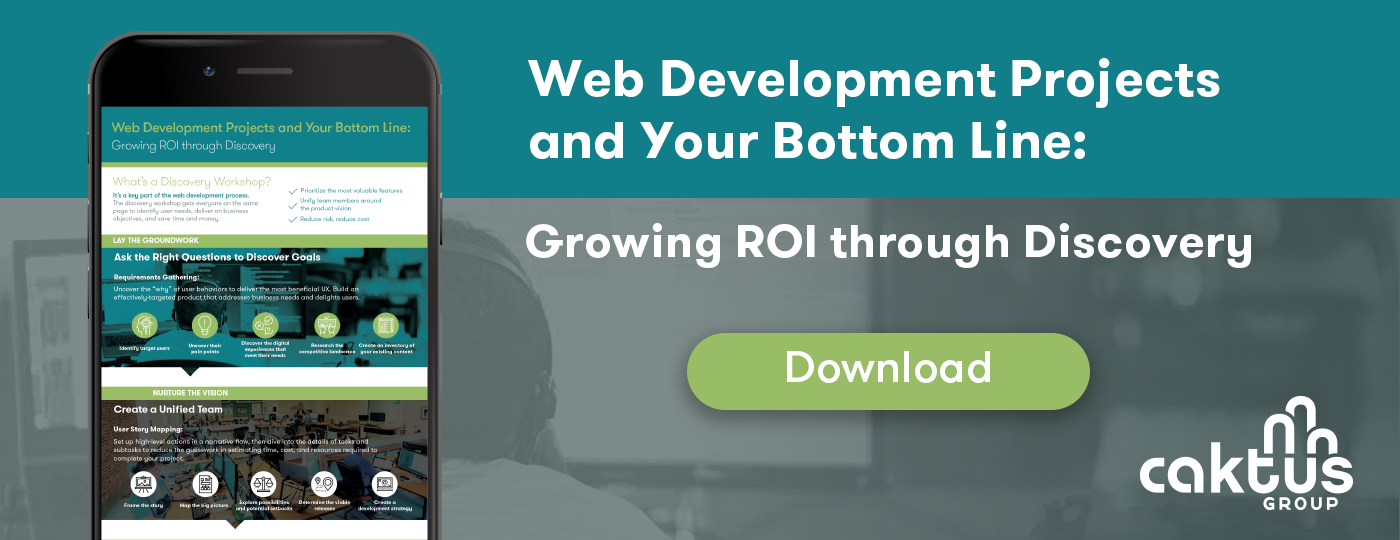Developing custom software that will wow clients requires having a very good sense of what clients want. And on the other side of the table, hiring a custom software developer who will be able to provide the technical solution you’re looking for requires being able to communicate exactly what that is.
One good way of getting a client and development team on the same page is to conduct a discovery workshop at the beginning to establish your working relationship in custom software development. This structured conversation will help answer the seven basic questions about the problem the software will be trying to solve: what, where, why, when, who, how, and which. Once you have those answers laid out, it’s easier to conceive of how a solution can satisfy unmet needs.
Another good activity to conduct in a discovery workshop is user story mapping, in which the team walks through the experience of using the planned product. Doing this simple-but-powerful activity creates a clear vision of what should result from the project and allows for the discovery of any possible obstacles or pitfalls in the potential design of the application.
A discovery workshop is not only a useful way to get everybody on the same page and envision a mock-up, however. It is also a helpful way of making sure a project is set to be executed smoothly, with high staff engagement and confidence, organizational buy-in, and a preset schedule and budget.
Here are three ways a discovery workshop can set your team up for success:
- Organizational buy-in. Bringing organizational leadership from outside of your own team into the discussion will create internal stakeholders that can advocate for and promote your team’s work. This will help when it comes time to spend resources on necessary but mundane tasks like upgrading software.
- Improved morale with shared vision and goals. It’s a morale-boost for your team to understand the why and how of the project and to receive constructive feedback that matches those conceptions. Articulating goals that everyone on the project shares can help your team independently prioritize what to work on to help the larger project meet those goals.
- Scope management. Operating under a common understanding of the scope and goals of the project allows the development team to determine whether requested new features or changes really support the project, or instead whether they may throw things off-track without furthering progress toward project goals.
Creating projects that are well-thought-out and verbally hashed out helps keep costs from spiraling due to sluggish progress, confusing communication, or misunderstandings about time and budget requirements.
The goal is to turn a concept into a plan that will come to fruition smoothly without unforeseen roadblocks to development. A discovery workshop can be the key to meeting that goal.



